The Letters of Jane Austen
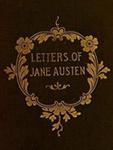
This edition of Jane Austen's letters was edited by Fanny Knight's son Edward Hugessen Knatchbull-Hugessen (the first Baron Brabourne, lived 1829-1893), and was published in 1884. It's neither complete (about two thirds of the letters now known to have survived are included), nor are the texts of the letters necessarily always transcribed with minute scholarly fidelity, but it's out of copyright, and includes many annotations and quaint comments on the letters. (The latest edition of Jane Austen's letters came out in 1995.)
Contents
- Preface
- 1 - STEVENTON, Thursday (January 16, 1796)
- 2 - CORK STREET, Tuesday morn (August, 1796)
- 3 - ROWLING, Monday (September 5)
- 4 - ROWLING, Thursday (September 15)
- 5 - ROWLING, Sunday (September 18)
- 6 - "BULL AND GEORGE," DARTFORD, Wednesday (October 24, 1798)
- 7 - STEVENTON, Saturday (October 27)
- 8 - STEVENTON, December 1
- 9 - STEVENTON, Tuesday (December 18)
Related Books
-
 The Beasts of TarzanEdgar Rice Burroughs
The Beasts of TarzanEdgar Rice Burroughs -
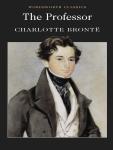 The ProfessorCharlotte Bronte
The ProfessorCharlotte Bronte -
 The Tin Woodman Of OzL. Frank Baum
The Tin Woodman Of OzL. Frank Baum -
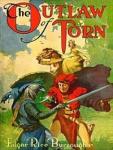 The Outlaw of TornEdgar Rice Burroughs
The Outlaw of TornEdgar Rice Burroughs -
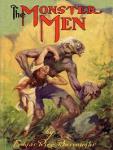 The Monster MenEdgar Rice Burroughs
The Monster MenEdgar Rice Burroughs -
 The Gods of MarsEdgar Rice Burroughs
The Gods of MarsEdgar Rice Burroughs -
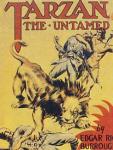 Tarzan the UntamedEdgar Rice Burroughs
Tarzan the UntamedEdgar Rice Burroughs -
 Jungle Tales of TarzanEdgar Rice Burroughs
Jungle Tales of TarzanEdgar Rice Burroughs
Author other works
-

Emma
Jane Austen
Emma Woodhouse, aged 20 at the start of the novel, is a young, beautiful, witty, and privileged woman in Regency England. She lives on the fictional estate of Hartfield in Surrey in the village of Highbury with her elderly widowed father, a hypochondriac who is excessively concerned for the health and safety of his loved ones. Emma's friend and only critic is the gentlemanly George Knightley, her neighbour from the adjacent estate of Donwell, and the brother of her elder sister Isabella's husband, John. As the novel opens, Emma has just attended the wedding of Miss Taylor, her best friend and former governess. Having introduced Miss Taylor to her future husband, Mr. Weston, Emma takes credit for their marriage, and decides that she rather likes matchmaking. Against Mr. Knightley's advice, Emma forges ahead with her new interest, and tries to match her new friend Harriet Smith, a sweet, pretty, but none-too-bright parlour boarder of seventeen —described as "the natural daughter of somebody"— to Mr. Elton, the local vicar. Emma becomes convinced that Mr. Elton's constant attentions are a result of his attraction and growing love for Harriet. But before events can unfold as she plans, Emma must first persuade Harriet to refuse an advantageous marriage proposal. Her suitor is a respectable, educated, and well-spoken young farmer, Robert Martin, but Emma snobbishly decides he isn't good enough for Harriet. Against her own wishes, the easily-influenced Harriet rejects Mr. Martin.
-

Mansfield Park
Jane Austen
Mansfield Park is a novel by Jane Austen, written at Chawton Cottage between February 1811 and 1813.The main character, Fanny Price, is a young girl from a large and relatively poor family, who is taken from them at age 10 to be raised by her rich uncle and aunt, Sir Thomas, a baronet, and Lady Bertram, of Mansfield Park. She had previously lived with her own parents, Lieut. Price and his wife, Frances (Fanny), Lady Bertram's sister. She is the second child and eldest daughter, with seven siblings born after her. She has a firm attachment to her older brother, William, who at the age of 12 has followed his father into the navy. With so many mouths to feed on a limited income, Fanny's mother is grateful for the opportunity to send Fanny away to live with her fine relatives.At Mansfield Park, Fanny grows up with her four older cousins, Tom Bertram, Edmund Bertram, Maria Bertram and Julia, but is always treated as something of a poor relation. Only Edmund, the second son, shows her real kindness. He is also the most good-natured of the siblings: Maria and Julia are vain and spoiled, while Tom is an irresponsible gambler. Over time, Fanny's gratitude for Edmund's thoughtfulness secretly grows into romantic love. Her other maternal aunt, Mrs. Norris, the local parson's wife, showers attention and affection on her Bertram nieces, particularly Maria, but is verbally abusive and mean-spirited toward Fanny. She tries to exclude Fanny from outings and other pleasures, even denying her a fire in her room.A few years after Fanny arrives, Aunt Norris is widowed, moves into a cottage of her own, and becomes an ever-more constant presence at Mansfield Park. Sir Thomas offers the parsonage to a Dr. Grant, who moves in with his wife.When Fanny is 16, the stern patriarch Sir Thomas leaves for a year to deal with problems on his plantation in Antigua. He takes Tom along in hopes that the experience will sober him up. Meanwhile Mrs. Norris has taken on the task of finding a husband for Maria Bertram and succeeds in introducing her favorite niece to Mr. Rushworth, a very rich and rather stupid man. Maria accepts his marriage proposal, subject to Sir Thomas's approval on his return.About this time, the fashionable, wealthy, and worldly Henry Crawford and his sister, Mary Crawford, arrive at the parsonage to stay with Mrs. Grant, their half-sister. After a year in Antigua, Sir Thomas sends Tom home while he continues business alone. Although his wife is indolent almost to the point of disengagement, Sir Thomas feels confident about his family situation, relying on the officious Mrs. Norris and steady, responsible Edmund to keep life running smoothly.The arrival of the lively, attractive Crawfords disrupts the staid world of Mansfield and sparks a series of romantic entanglements. Mary and Edmund begin to form an attachment, despite her original preference for Tom as the heir of Mansfield Park. Although Edmund worries that her often cynical conversation may mask a lack of firm principle, and Mary is unhappy that Edmund wants to become a clergyman, their mutual attraction grows.Fanny fears that Mary has enchanted Edmund, and that love has blinded him to her flaws. (Also, of course, she is in love with him herself.) Meanwhile, during a visit to Mr. Rushworth's ancestral estate in Sotherton, Henry deliberately plays with the affections of both Maria and Julia, driving them apart. Maria believes that Henry is falling in love with her and treats Mr. Rushworth dismissively, provoking his jealousy. Although nobody is paying much attention to Fanny, she is highly observant and witnesses Maria and Henry in compromising situations.Encouraged by Tom and his friend Mr. Yates, the young people decide to put on Elizabeth Inchbald's play Lovers' Vows; however, Edmund and Fanny both initially object, believing Sir Thomas would disapprove and feeling that the subject matter of the play, which includes adultery, is not appropriate. Eventually Edmund reluctantly agrees to take on the role of Anhalt, the lover of the character played by Mary Crawford. Besides giving Mary and Edmund plenty of scope for talking about love and marriage, the play provides a pretext for Henry and Maria to flirt in public.When Sir Thomas unexpectedly arrives home in the middle of a rehearsal, the theatricals are abruptly terminated. Henry, whom Maria had expected to propose to her, leaves, and she feels crushed, realising that he does not love her. Although she neither likes nor respects Mr. Rushworth, she goes ahead and marries him to escape the oppressive atmosphere of Mansfield, and they leave for Brighton, taking Julia with them. Meanwhile, Fanny's improved appearance and gentle disposition endear her to Sir Thomas, who begins treating her a bit less distantly. With Maria and Julia gone, Fanny and Mary Crawford are naturally thrown into each other's company. Out of affection and because she knows it will please Edmund and his father, Mary goes out of her way to befriend Fanny.Henry returns to Mansfield Park and decides to amuse himself by making Fanny fall in love with him. However, Fanny is steadfastly if secretly in love with Edmund, and the tables are turned when Henry actually falls in love with Fanny. To further his suit, he uses his family connections to raise Fanny's brother William to the rank of naval lieutenant, to Fanny's great joy. However, when he proposes marriage, Fanny rejects him out of hand, partially because she disapproves of his moral character, and also because she loves someone else. Sir Thomas is dismayed and startled by her refusal, since it is an extremely advantageous match for a poor girl like Fanny. He reproaches her for ingratitude, and believing it is all female timidity on Fanny's part, encourages Henry to persevere.To bring Fanny to her senses, Sir Thomas sends her home for a visit to Portsmouth, hoping that the lack of creature comforts there will help her set a higher value on Henry's offer. She sets off with William, who is briefly on leave, and sees him off in his first command. At Portsmouth, she develops a firm bond with her younger sister Susan, but is taken aback by the contrast between her dissolute surroundings--noise, chaos, unpalatable food--and the environment at Mansfield. Henry visits her to try to convince her that he has changed and is worthy of her affection. Although Fanny still maintains that she cannot marry him, her attitude begins to soften, particularly as Edmund and Mary seem to be moving toward an engagement.Henry leaves for London, and shortly afterward, Fanny learns that scandal has enveloped him and Maria. The two had met at a party and rekindled their flirtation, and Maria has left her husband for him. A national scandal sheet gets wind of the affair, Maria is exposed as an adulterous wife, Mr. Rushworth sues for divorce, and the proud Bertram family is devastated. To make matters worse, Tom has taken ill, and Julia, fearing that her father will essentially lock her up, has eloped with Tom's flighty friend Mr. Yates.In the midst of this crisis, Fanny returns to Mansfield Park with her sister, Susan, now joyfully welcomed by all the family. A repentant Sir Thomas realizes that Fanny was right to reject Henry's proposal and now regards her as his daughter. During an emotional meeting with Mary Crawford, Edmund discovers that Mary does not condemn Henry and Maria's adultery, only that it was discovered. Her main concern is covering it up, and she implies that if Fanny had only accepted Henry, there would have been no affair. Edmund, who had idolized Mary, feels that her true nature has been revealed to him. He tells her so, returns to Mansfield, and goes ahead with plans to be ordained a minister.While he is despairing of ever getting over Mary, Edmund comes to realize how important Fanny is to him. He declares his love for her, and they are married, and eventually they move to the Mansfield Park parsonage, where they live close to those they love best. Tom recovers from his illness, a steadier and better man for it, and Julia's husband, Mr. Yates, turns out to be not so empty-headed after all. Henry Crawford refuses to marry Maria, who is banished by her family to live "in another country," where she is joined by her aunt Mrs. Norris. Fanny becomes the effective moral center of Mansfield Park.
-
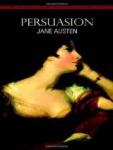
Persuasion
Jane Austen
Persuasion is Jane Austen's last completed novel. She began it soon after she had finished Emma, completing it in August 1816. She died, aged 41, in 1817; Persuasion was published in December that year (but dated 1818).More than eight years before the novel opens, Anne Elliot, then a lovely, thoughtful, warm-hearted 19 year old, accepts a proposal of marriage from the handsome young naval officer Frederick Wentworth. He is clever, confident, and ambitious, but poor and with no particular family connections to recommend him. Sir Walter, Anne's fatuous, snobbish father and her equally self-involved older sister Elizabeth are dissatisfied with her choice, maintaining that he is no match for an Elliot of Kellynch Hall, the family estate. Her older friend and mentor, Lady Russell, acting in place of Anne's late mother, persuades her to break the engagement.Now 27 and still unmarried, Anne re-encounters her former love when his sister and brother-in-law, the Crofts, take out a lease on Kellynch. Wentworth is now a captain and wealthy from maritime victories in the Napoleonic wars. However, he has not forgiven Anne for rejecting him. While publicly declaring that he is ready to marry any suitable young woman who catches his fancy, he privately resolves that he is ready to become attached to any appealing young woman except for Anne Elliot.The self-interested machinations of Anne's father, her older sister Elizabeth, Elizabeth's widowed friend Mrs. Clay, and William Elliot (Anne's cousin and her father's heir) constitute important subplots.
-
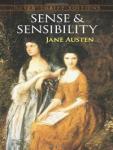
Sense and Sensibility
Jane Austen
Sense and Sensibility is a novel by Jane Austen, and was her first published work when it appeared in 1811 under the pseudonym "A Lady".When Mr. Dashwood dies, his estate, Norland Park, passes directly to his only son John, the child of his first wife. His second wife, Mrs. Dashwood, and their daughters, Elinor, Marianne and Margaret, are left only a small income. On his deathbed, Mr. Dashwood extracts a promise from his son, that he will take care of his half-sisters; however, John's selfish and greedy wife, Fanny, soon persuades him to renege. John and Fanny immediately take up their place as the new owners of Norland, while the Dashwood women are reduced to the position of unwelcome guests. Mrs. Dashwood begins looking for somewhere else to live.In the meantime, Fanny's brother, Edward Ferrars, a pleasant, unassuming, intelligent but reserved young man, visits Norland and soon forms an attachment with Elinor. Fanny disapproves the match and offends Mrs. Dashwood with the implication that Elinor is motivated by money rather than love. Mrs. Dashwood indignantly speeds her search for a new home.Mrs. Dashwood moves her family to Barton Cottage in Devonshire, near the home of her cousin, Sir John Middleton. Their new home lacks many of the conveniences that they have been used to, however they are warmly received by Sir John, and welcomed into the local society, meeting his wife, Lady Middleton, his mother-in-law, Mrs. Jennings and his friend, the grave, quiet and gentlemanly Colonel Brandon. It soon becomes apparent that Colonel Brandon is attracted to Marianne, and Mrs. Jennings teases them about it. Marianne is not pleased as she considers Colonel Brandon, at thirty-five, to be an old bachelor incapable of falling in love, or inspiring love in anyone else.Marianne, out for a walk, gets caught in the rain, slips and sprains her ankle. The dashing, handsome John Willoughby sees the accident and assists her. Marianne quickly comes to admire his good looks and outspoken views on poetry, music, art and love. Mr. Willoughby's attentions are so overt that Elinor and Mrs. Dashwood begin to suspect that the couple are secretly engaged. Elinor cautions Marianne against her unguarded conduct, but Marianne refuses to check her emotions, believing this to be a falsehood. Unexpectedly one day, Mr. Willoughby informs the Dashwoods that his aunt is sending him to London on business, indefinitely. Marianne is distraught and abandons herself to her sorrow.Edward Ferrars then pays a short visit to Barton Cottage but seems unhappy and out of sorts. Elinor fears that he no longer has feelings for her, but feels compelled, by a sense of duty, to protect her family from knowing her heartache. Soon after Edward departs, Anne and Lucy Steele, the vulgar and uneducated cousins of Lady Middleton, come to stay at Barton Park. Lucy informs Elinor of her secret four year engagement to Edward Ferrars, displaying proofs of her veracity. Elinor comes to understand the inconsistencies of Edward's behaviour to her and acquits him of blame. She is charitable enough to pity Edward for being held to a loveless engagement by his gentlemanly honour.As winter approaches, Elinor and Marianne accompany Mrs. Jennings to London. Upon arriving, Marianne writes a series of letters to Mr. Willoughby which go unanswered. When they finally meet, Mr. Willoughby greets Marianne reluctantly and coldly, to her extreme distress. Soon Marianne receives a curt letter enclosing their former correspondence and love tokens, including a lock of her hair and informing her of his engagement to a young lady of large fortune. Marianne is devastated, and admits to Elinor that she and Willoughby were never engaged, but she loved him and he led her to believe he loved her. In sympathy for Marianne, and to illuminate his character, Colonel Brandon reveals to Elinor that Mr. Willoughby had seduced Brandon's fifteen-year-old ward, and abandoned her when she became pregnant.In the meantime, the Steele sisters have come to London as guests of John and Fanny Dashwood. Lucy sees her invitation to the Dashwoods' as a personal compliment, rather than what it is, a slight to Elinor. In the false confidence of their popularity, Anne Steele betrays Lucy's secret. As a result the Misses Steele are turned out of the house, and Edward is entreated to break the engagement on pain of disinheritance. Edward, honourably, refuses to comply and is immediately disinherited in favour of his brother, gaining widespread respect for his gentlemanly conduct, and sympathy from Elinor and Marianne who understand how much he has sacrificed.In her misery over Mr. Willoughby's marriage, Marianne neglects her health and becomes dangerously ill. Traumatised by rumours of her impending death, Mr. Willoughby arrives to repent and reveals to Elinor that his love for Marianne was genuine. Threatened with disinheritance because of his immoral behaviour, he felt he must marry for money rather than love, but he elicits Elinor's pity because his choice has made him unhappy.When Marianne is recovered, Elinor tells her of Mr. Willoughby's visit. Marianne comes to assess what has passed with sense rather than emotion, and sees that she could never have been happy with Mr Willoughby's immoral and expensive nature. She comes to value Elinor's conduct in a similar situation and resolves to model herself after Elinor's courage and good sense.Upon learning that Lucy has married Mr. Ferrars, Elinor is grieved, until Edward himself arrives to reveal that Lucy has jilted him in favour of his wealthy brother, Robert Ferrars. Edward and Elinor are soon married and in a very few years Marianne marries Colonel Brandon.
-
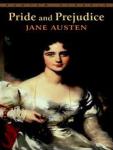
Pride and Prejudice
Jane Austen
The novel centers on the Bennet family, consisting of the bookish Mr Bennet, his wife, a woman somewhat lacking in social graces and primarily concerned with her family's fortunes, and their five daughters. The youngest, Lydia, most takes after Mrs Bennet; the eldest, Jane, is kind-hearted and proper; and the central character, Elizabeth Bennet, is the second-eldest and most takes after her father, sharing his keen wit and occasionally sarcastic outlook.The narrative opens with Mr Bingley's, a wealthy, charismatic and social young bachelor, moving into Netherfield Park in the neighbourhood of the Bennet family. Mr Bingley is soon well received, while his friend Mr Darcy makes a less favorable first impression by appearing proud and condescending at a ball that they attend (he detests dancing and is not much for light conversation). Mr Bingley singles out Jane for particular attention, and it soon becomes apparent that they have formed an attachment to each other, though Jane does not alter her conduct for him, confessing her great happiness only to Lizzie. By contrast, Darcy slights Elizabeth, who overhears and jokes about it despite feeling a budding resentment.On paying a visit to Mr Bingley's sister, Caroline, Jane is caught in a heavy downpour, catches cold, and is forced to stay at Netherfield for several days. Elizabeth arrives to nurse her sister and is thrown into frequent company with Mr Darcy, who begins to act marginally less coldly towards her.Mr Collins, a clergyman, pays a visit to the Bennets. Mr Bennet and Elizabeth are much amused by his obsequious veneration of his employer, the noble Lady Catherine de Bourgh, as well as by his self-important and pedantic nature. It soon becomes apparent that Mr Collins has come to Longbourn to choose a wife from among the Bennet sisters (his cousins) and Elizabeth has been singled out. At the same time, Elizabeth forms an acquaintance with Mr Wickham, a militia officer who claims to have been very seriously mistreated by Mr Darcy, despite having been a ward of Mr Darcy's father. This tale, and Elizabeth's attraction to Mr Wickham, fuels her dislike of Mr Darcy.At a ball given by Mr Bingley at Netherfield, Mr Darcy becomes aware of a general expectation that Mr Bingley and Jane will marry, and the Bennet family, with the exception of Jane and Elizabeth, make a public display of poor manners and decorum. The following morning, Mr Collins proposes marriage to Elizabeth, who refuses him, much to her mother's distress. Mr Collins recovers and promptly becomes engaged to Elizabeth's close friend Charlotte, a homely woman with few prospects. Mr Bingley abruptly quits Netherfield and returns to London, devastating Jane, and Elizabeth becomes convinced that Mr Darcy and Caroline Bingley have colluded to separate him from Jane.In the spring, Elizabeth visits Charlotte and Mr Collins in Kent. Elizabeth and her hosts are frequently invited to Rosings Park, home of Lady Catherine de Bourgh, Darcy's aunt; coincidentally, Darcy also arrives to visit. Elizabeth meets Darcy's cousin, Colonel Fitzwilliam, who vouches for Darcy's loyalty, using as an example how Darcy had recently stepped in on behalf of a friend, who had formed an attachment to a woman against whom "there were some very strong objections." Elizabeth is astonished to discover that said friend was none other than Mr Bingley, and her dislike of Darcy hardens further. Thus she is of no mood to accept when Darcy arrives and, quite unexpectedly, confesses love for her and begs her hand in marriage. Elizabeth rebukes him, and a heated discussion follows; she charges him with destroying her sister's happiness, with treating Mr Wickham disgracefully, and with having conducted himself towards her in an arrogant, ungentleman-like manner. Mr Darcy, shocked, ultimately responds with a letter giving a good account of (most of) his actions: Wickham had exchanged his legacies for a cash payment, only to return after gambling away the money to reclaim the forfeited inheritance; he then attempted to elope with Darcy's young sister Georgiana, thereby to capture her fortune. Regarding Jane, Darcy claims he had observed no reciprocal interest in Jane for Bingley, and had assumed her not to be in love with him. In addition to this, he cites the "want of propriety" in the behaviour of Mrs Bennet and her three younger daughters. Elizabeth, who had previously despaired over these very behaviors, is forced to admit the truth of Mr Darcy's observations, and begins to wonder whether she has misjudged him.Some months later, Elizabeth and her Aunt and Uncle Gardiner visit Pemberley, Darcy's estate, believing he will be absent for the day. He returns unexpectedly, and though surprised, he is gracious and welcoming. He treats the Gardiners with great civility. Darcy introduces Elizabeth to his sister, and Elizabeth begins to realize her attraction to him. Their reacquaintance is cut short, however, by the news that Lydia has run away with Mr Wickham. Elizabeth and the Gardiners return to Longbourn, where Elizabeth grieves that her renewed acquaintance with Mr Darcy will end as a result of her sister's disgrace.Lydia and Wickham are soon found, then married by the clergy; they visit Longbourn, where Lydia lets slip that Mr Darcy was in attendance at her wedding but that this was to have been a secret. Elizabeth is able to discover, from her Aunt Mrs. Gardiner, that in fact Mr. Darcy was responsible for finding the couple and negotiating their marriage, at great personal and monetary expense. Elizabeth is shocked but is unable to dwell further on the topic due to Mr Bingley's return and subsequent proposal to Jane, who immediately accepts.Lady Catherine de Bourgh later bursts in on Longbourn; intending to thwart local rumour, she warns Elizabeth against marrying Mr Darcy. Elizabeth refuses her demands. Disgusted, Lady Catherine leaves and drops by to inform her nephew on Elizabeth's abominable behaviour. However, this lends hope to Darcy that Elizabeth's opinion of him may have changed. He travels to Longbourn and proposes again, and this time, his pride and her prejudice done away with, Elizabeth accepts.